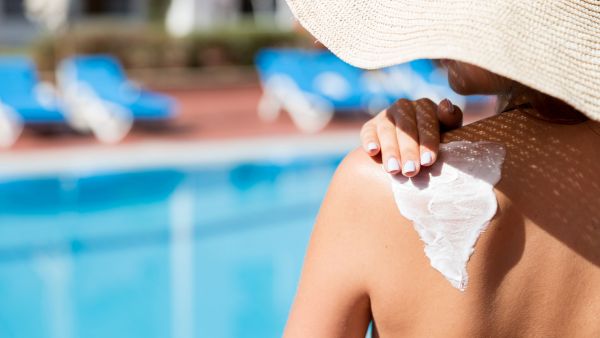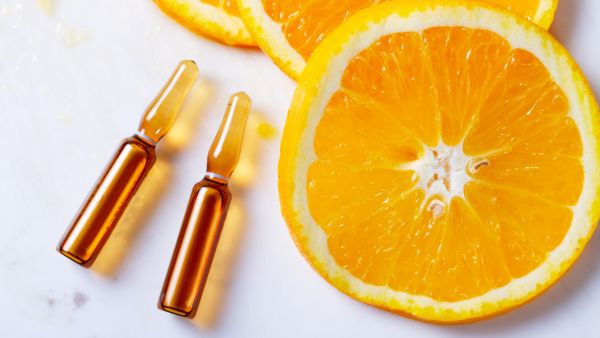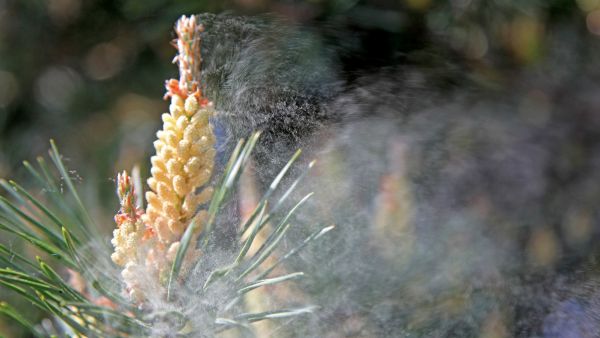Restorative Alpine Botanicals For Sun Stressed Skin
Let’s talk about plants, specifically alpine plants. From low oxygen levels, limited rainfall, windy peaks, and high elevations, alpine botanicals have had to adapt to extreme environments. They are also exposed to roughly 30% more UV rays than plants at lower elevations.
These harsh conditions have led alpine botanicals to produce phytochemical defenses to protect themselves from these environmental stressors, including damaging UV rays.
Powerful botanical constituents like polyphenols, pigment-rich carotenoids, flavonoids, and phytoceramides all work to help alpine extremophiles shield themselves from harmful UV rays.
Unlike alpine botanicals that have evolved to thrive in extreme conditions, too much sun exposure on our skin can cause a host of problems. From oxidative damage to increased inflammation, UV exposure can lead to premature skin aging and collagen breakdown or worse. You can read all about the effects of UV rays in our previous post, “5 Ways UV Rays Damage Your Skin.”
The good news is that the phytonutrients from alpine botanicals have been shown to help revitalize sun-stressed skin. They provide critical micronutrients that improve skin barrier health at the deepest level and help support the skin’s own defense mechanism against environmental assault.
To help fortify and restore your skin from the damaging effects of UV rays, consider incorporating alpine adaptogens into your skincare routine.
The following five alpine plants have been specifically selected to support skin barrier health, helping it to bounce back more quickly from environmental stressors like UV exposure.
Fortifying & Restorative Alpine Adptogens
Edelweiss Flower Extract
Edelweiss flower extract (Gnaphalium Leontopodium) is rich in antioxidants and has anti-inflammatory properties that can help fortify the skin from UV-induced oxidative stress and inflammation. With 2X the free-radical scavenging power of vitamin C, Edelweiss is an alpine powerhouse that should be in every recovery skincare routine. You can find it in our Aspen Dew Illuminating Essence.
Bearberry Leaf Extract
Bearberry leaf extract (Arctostaphylos Uva-Ursi) contains arbutin, a natural skin-lightening agent that can help reduce the appearance of UV-induced hyperpigmentation, combat photoaging, and age spots.
Alpine Sea Buckthorn
High-altitude Sea Buckthorn oil (Hippophae rhamnoides) contains a wealth of nutrients, including vitamins A, C, and E, as well as essential fatty acids. These nutrients can help promote skin recovery, soothe reddened angry skin, and fight photo-aging. You can find Sea Buckthorne in our Alpine Phytonutrient Serum.
Moringa
Highly nutritive Moringa seed oil (Moringa Oleifera) contains powerful antioxidants, vitamins, and minerals that can help boost skin recovery, promote skin renewal, combat premature photoaging, and moisturize skin at the deepest level.
Rosehip Seed Oil
Rosehip seed oil (Rosa Canina) is non-comedogenic and is quickly absorbed by the skin. It is packed with antioxidants, essential fatty acids, and vitamins A and C, which can help improve skin texture, reduce fine lines & wrinkles, and promote a healthy skin barrier. An excellent choice for acne sufferers.
Takeaway on alpine adaptogens
Incorporating these powerful alpine ingredients into your daily skincare routine can help fortify your skin from the damaging effects of UV radiation and assist in restoring healthy happy skin after you’ve been in the sun. You can find all of the above alpine botanicals in our Vibrant Skin Duo.
Please remember that these botanical actives should be used as a part of a comprehensive skincare routine that includes proper sun protection measures, such as applying a non-toxic mineral-based sunscreen with at least SPF 30+.
Always consult with a dermatologist for personalized skincare advice and recommendations tailored to your specific skin concerns and needs.
In the meantime, make sure to spread the word about Skin Cancer Awareness Month and the importance of sun protection to help others take care of their skin too.
What are your favorite sun protection tips and skincare ingredients? Share your thoughts in the comments below, and don't forget to spread the word about the importance of sun protection!
Continue reading





